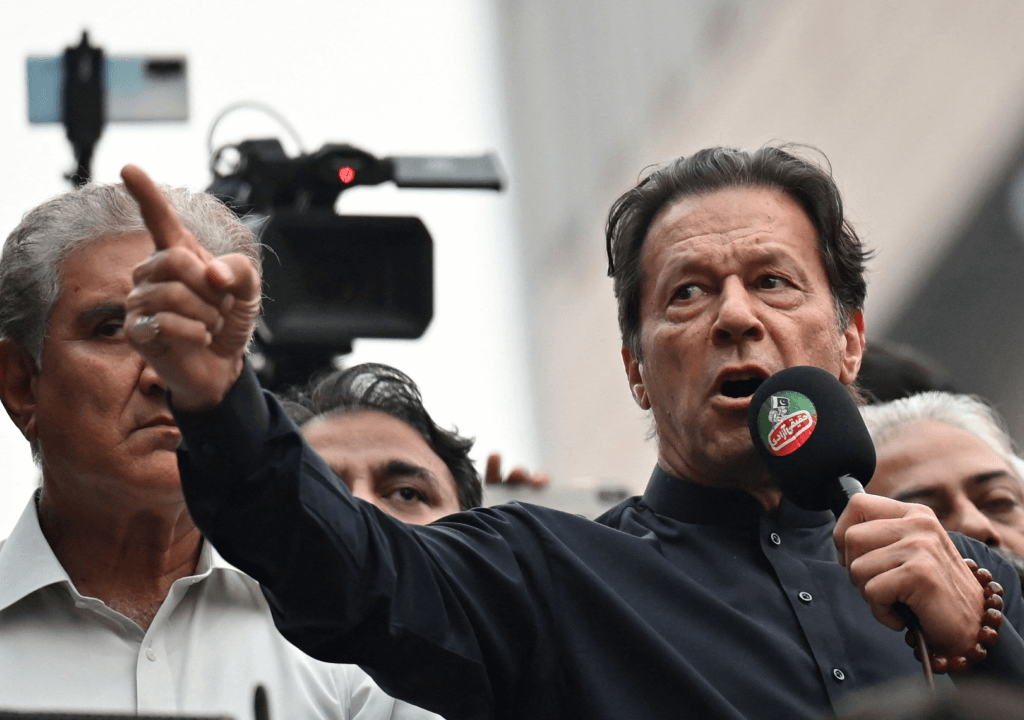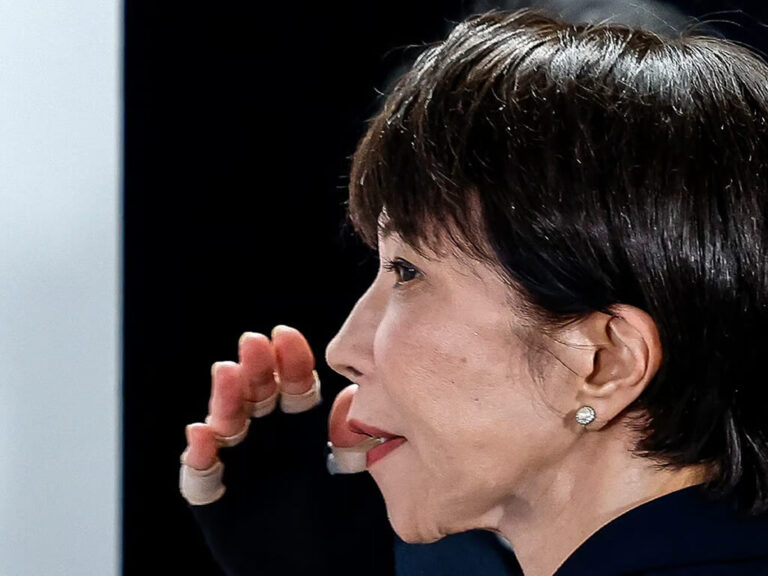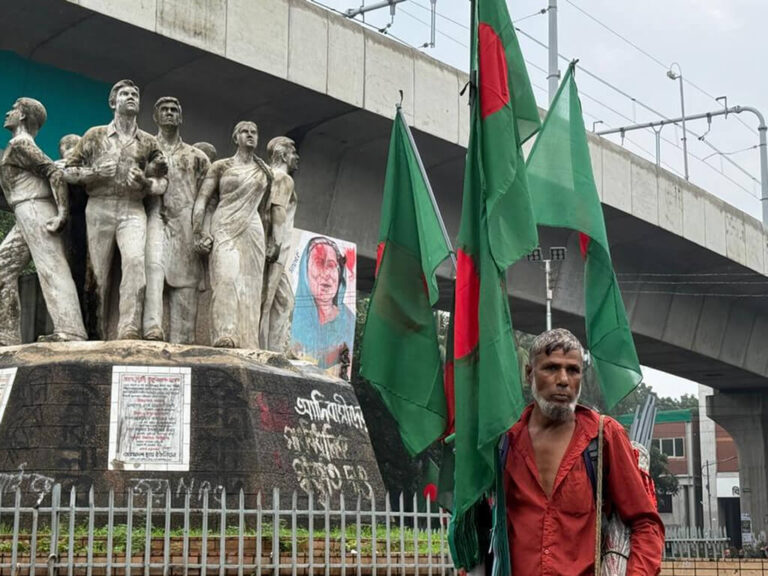In the end, it’s all about power. Two arch-rivals, both hailing from prominent political dynasties and tainted by allegations of corruption, have forged an alliance to grasp the reins of authority. Following the dramatic aftermath of the recent general election in Pakistan, a coalition comprising the Pakistan Muslim League-Nawaz (PML-N) and the Pakistan People’s Party (PPP) has orchestrated a strategic accord, effectively sidelining the party led by the populist former prime minister, Imran Khan, despite its securing the highest number of votes.
The coalition, composed of former collaborators who worked together to dismantle Imran Khan’s PTI government, was revealed in a press conference held in Islamabad on Tuesday night. With a shared goal of addressing the nation’s numerous challenges, these opposing factions, supported by two smaller coalition partners, publicly announced their plan to form a united government. Shehbaz Sharif, the brother of Nawaz Sharif, the former prime minister and current president of PML-N, emerged as their nominee for the position of prime minister.
In response to this intricate political maneuver, Imran Khan’s Pakistan Tehreek-e-Insaf (PTI) party vehemently denounced the coalition as “mandate thieves,” criticizing the collaborative endeavor to wrest control from the party that secured the highest number of votes. Despite PTI holding the largest vote percentage and the highest number of members, their inability to contest with a uniform election symbol, due to a ban, led to PML-N emerging as the largest party according to the election commission. With PPP and smaller parties lending their support, this coalition is poised to secure the majority of 133 seats out of 265. The military, a crucial determinant of power dynamics in the nation, has already given its endorsement to this formidable coalition.
As the final tally comes out by election commission, The Pakistan Tehreek-e-Insaf (PTI) has successfully garnered support by endorsing independent candidates, securing a significant tally of 92 seats. In a tightly contested political arena, the Pakistan Muslim League (N) has strategically allied with independent candidates, consolidating a formidable bloc with 81 seats. The Pakistan People’s Party follows with 54 seats, while the Muttahida Qaumi Movement – Pakistan, Jamiat Ulema-e-Islam (F), and the Pakistan Muslim League (Q) hold 17, 6, and 3 seats, respectively. Contributing to the intricate mosaic of political representation, smaller parties like the Balochistan National Party (Mengal), Istehkam-e-Pakistan Party, Awami National Party, Balochistan Awami Party, Majlis Wahdat-e-Muslimeen, Pakistan Muslim League (Z), and Pashtoonkhwa Milli Awami Party each hold one or two seats. This diverse distribution highlights the multiparty dynamics in play, laying the groundwork for a coalition government that necessitates strategic alliances for effective governance.
Initially anticipated as a straightforward victory for PML-N and its leader, the three-time former prime minister Nawaz Sharif, the election took an unexpected turn. PTI’s overwhelming support translated into the highest number of parliamentary seats, dealing a perceived blow to Nawaz Sharif, who had received tacit support from Pakistan’s influential military—an institution historically known for shaping election outcomes. PTI contends that widespread rigging tainted the electoral landscape, leading to an alleged injustice that deprived them of numerous parliamentary seats. From his prison confines on Tuesday, Khan cautioned against other political entities “venturing into the misadventure of forming a government with stolen votes.”
The subsequent press briefing illuminated the coalition’s selection of Shehbaz Sharif, the younger sibling of Nawaz Sharif and a former prime minister from 2022 to 2023, as their nominee for the role of prime minister. With no opposition within the coalition, he stands poised to assume the position uncontested. Asif Ali Zardari, co-chair of the Pakistan People’s Party (PPP), elucidated the reasoning behind their alignment with PML-N, stating, “Looking at everything, we have thought and decided to sit together. We have contested elections against each other, but despite that, it is not necessary forever. Opposition happens in elections. It was electioneering opposition, not ideological opposition.”
While Zardari is slated for the presidency nomination, the PPP affirmed their intention to abstain from holding ministries within the coalition government. These roles will be occupied by figures from PML-N and smaller coalition partners. Bilawal Bhutto, Zardari’s son and PPP co-chair, exhibited reluctance to forge a close association between the party and the coalition government, rooted in the considerable support for PTI among the masses and the perceived unpopularity of PML-N.
Shehbaz Sharif expressed gratitude to Zardari and Bilawal, acknowledging their party’s decision to vote for PML-N. He emphasized the coalition’s unified stance, declaring, “Today we have united to tell the nation that we all accept the split mandate.” Despite this, public skepticism and legitimacy questions persist, prompting Shehbaz Sharif to pledge “revolutionary steps” to address the economic crisis. However, the new government inherits power amid a cloud of public distrust, particularly from fervent supporters of Khan and PTI, who view PML-N and PPP as enablers of military interference in politics.
The coalition’s proclamation also underscores the sustained dominance of Pakistan’s two powerful political dynasties – the Bhuttos and the Sharifs. Maryam Nawaz, Nawaz Sharif’s daughter, assumes the role of chief minister of Punjab province, wielding significant political influence.
In anticipation of a potential opposition role, PTI’s leadership categorically rejected coalition offers from PML-N or PPP, bolstered by the incarceration of numerous senior PTI figures who allege politically motivated legal proceedings against them. Responding to the evolving political landscape, Zardari extended an olive branch to PTI for reconciliation, stating, “It should, and every other political force should, come and talk with us. Our economic and defense agenda should be common.”
Despite legal challenges raised by PTI, the impending government is destined to be a coalition of PML-N and PPP. Despite skepticism from international media, the military’s decisive role solidifies this alliance. The future trajectory of this government may be foreseeable, as any internal issues within this coalition are unlikely to lead to another election, given the fragile state of Pakistan’s economy. The notorious alliance of parties notorious for corruption and dynastic politics, appears poised to steer Pakistan, raising concerns about the country’s future stability.








